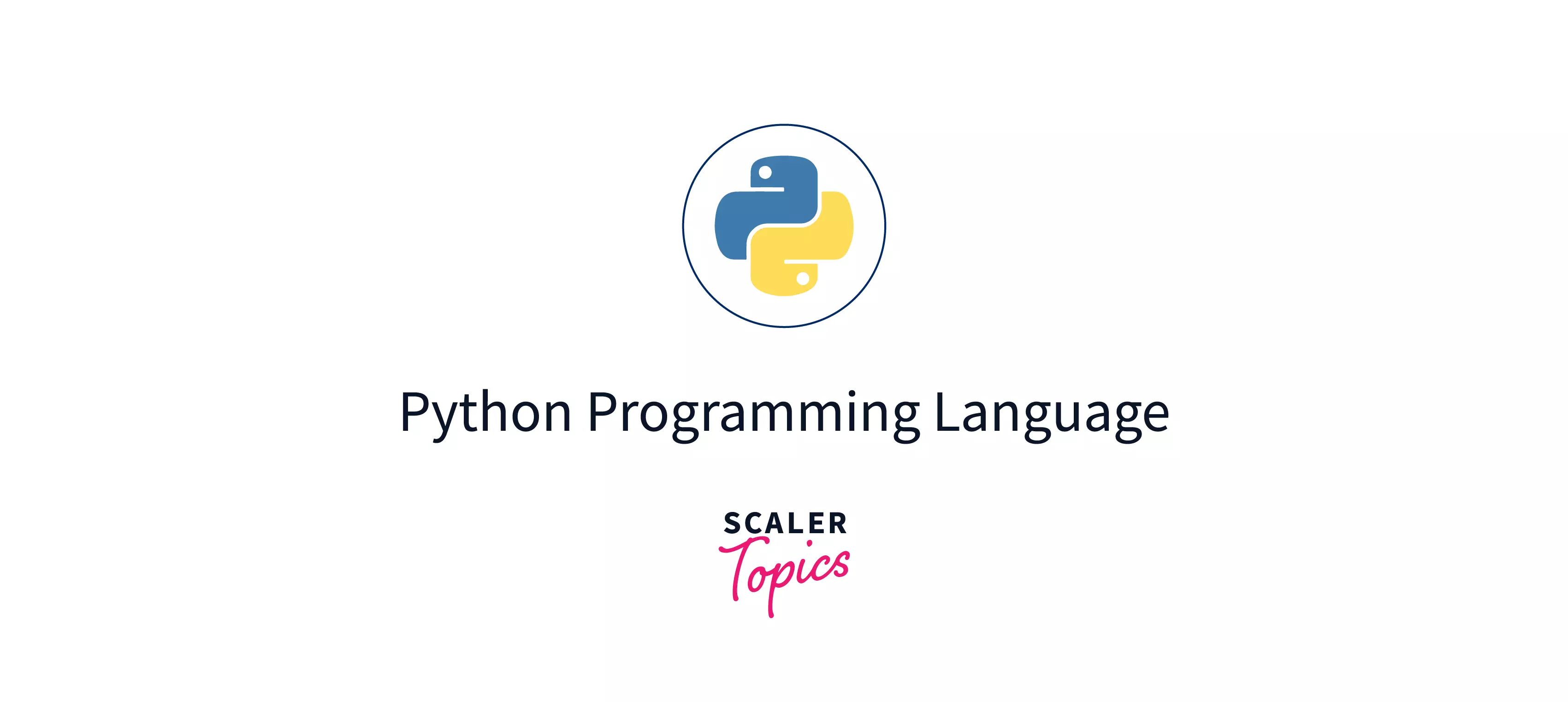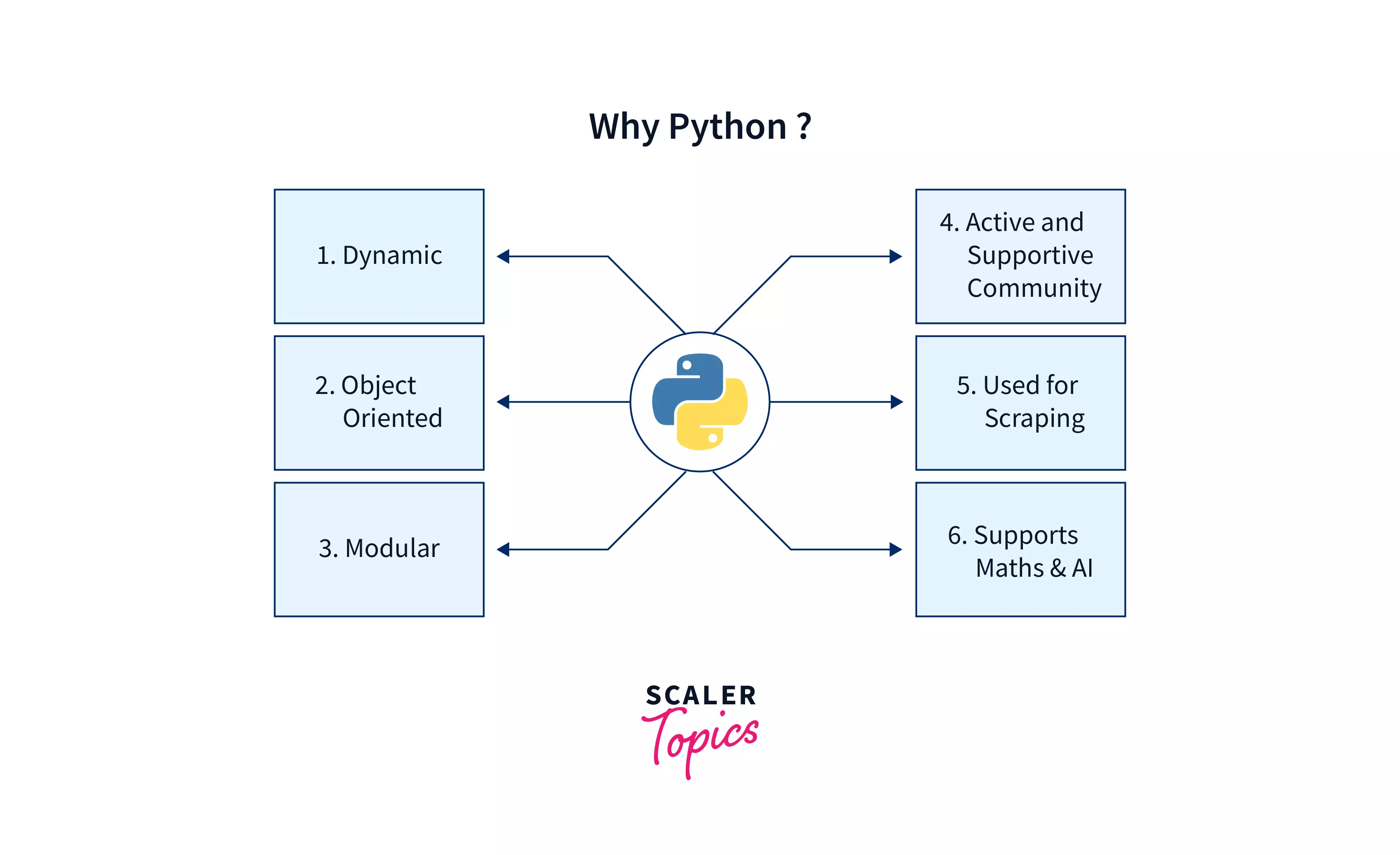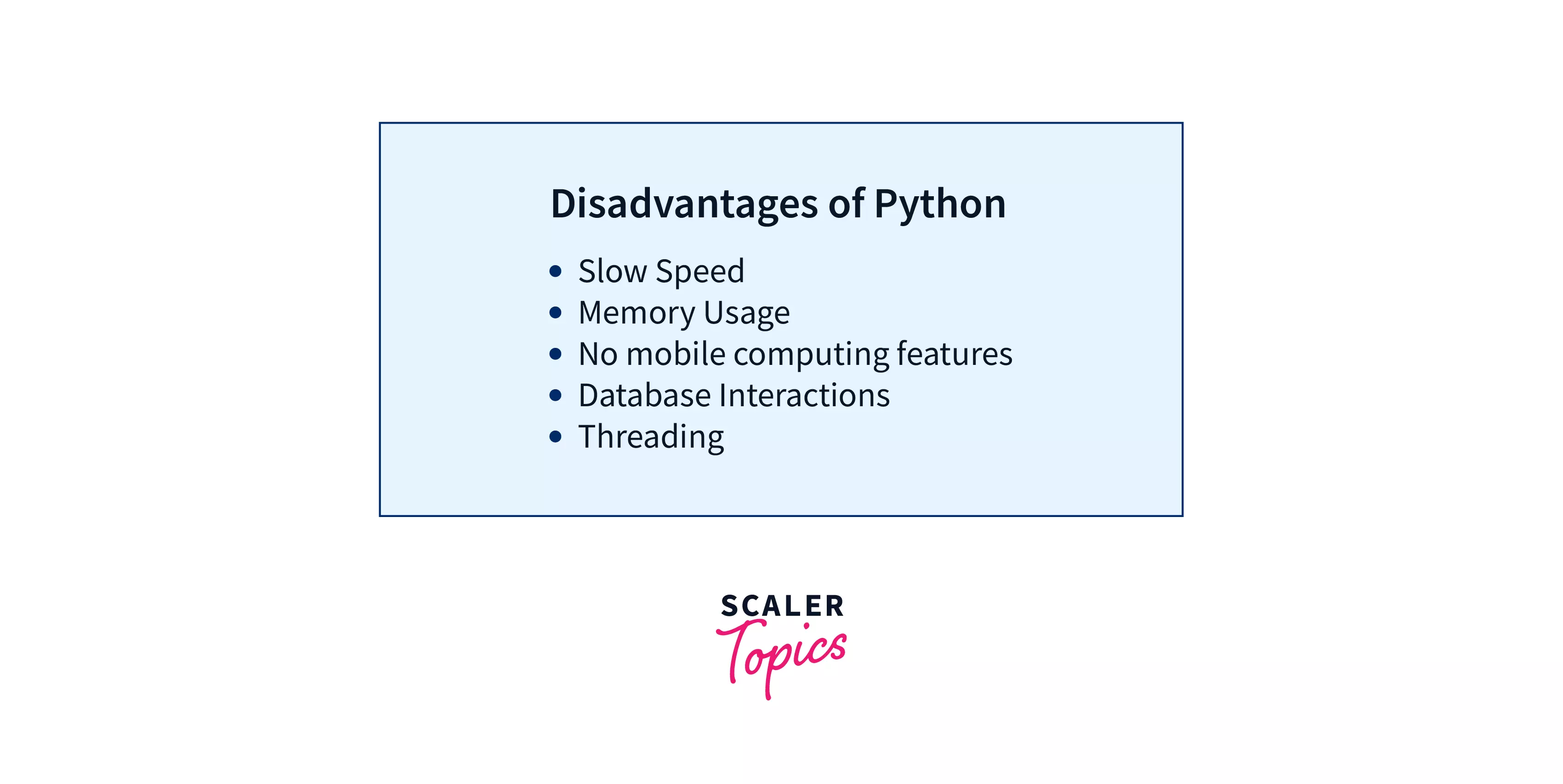Advantages of Python

Overview
The importance and usage of python have been increasing over time as it offers simple syntax, clear readability, and various libraries to work with. It is predominantly used by many organizations worldwide as it accommodates several programming paradigms. It also supports automatic garbage collection.

Advantages of Python
There are many advantages of Python over other programming languages.
Let's deep dive into some of them:
1. Easy-to-learn & Easy-to-Use
Python has very intuitive syntax. Reading python code is like reading English script with some punctuation which makes it so easy to learn, understand, read and code. Python doesn't make use of curly brackets to define the blocks of code, which further improves the readability of the code. As compared to other programming languages such as C++ and Java, Python requires fewer lines of code to do the same task making it less bulky.
2. Interpreted Language
Python is designed as an interpreted language, which means the whole code would be executed line by line directly. If there is an error in between the block of code, that single error will get encountered right away causing the further program to stop, which assists in debugging the code fast. If that block contains multiple errors, only one error will be shown at a time, making it easier for the programmer to debug it.
3. Free & Open Source
OSI(Open Source Initiative) has approved Python to be an open-source language that offers its users to use it for free and distribute. Programmers can download the source code from the internet, make some modifications, and can distribute their versions of python. This has leveraged many organizations by having their form of python and can use it for development accordingly.
4. Improves Productivity
In terms of productivity, python has secured more points than many other programming languages. The fact lies in the simplicity of the language. As the syntax of the language is not bulky, developers can focus more on the problem statement rather than debugging their syntax errors, thereby increasing productivity.
5. Easily Portable
Portable is something that can be easily carried. Most programming languages like C and C++ need to be edited before running them on different platforms. This is one of the key advantages that python has over them. It is easily portable as once written, it can be run on any platform. This is referred to as Write Once Run Anywhere(WORA). However, the python program must not include any system-dependent features.
6. Massive Libraries
Python's usage has increased significantly due to its wide range of libraries. These enormous libraries include numerous functions already programmed that a user needs to use. Hence, the dependence on external libraries is very minimal.
However, other packages can also be installed using the Python package manager (pip) that imports them from the Python package index (PyPi). It comprises over 200,000 packages.
Some of the most used libraries are NumPy, Pandas, Matplotlib, etc. Each library is utilized for different purposes. NumPy supports multi-dimensional arrays for storing data with a high number of mathematical functions. Similarly, Pandas is extensively used for data manipulation. Matplotlib serves the purpose of data visualization and offers interactive graphs with formatting.
Click here to learn more about Matplotlib in Python.

Disadvantages of Python
Everything comes with some cons, and so do our programming languages. Although the advantages of python outnumber its disadvantages, still it is considered best to go through with them.
1. Slow Speed
As we know python is an interpreted language, it needs to do some extra amount of work while executing each line which hampers the speed of the program. As a result, this dynamic nature of python brings along a weakness with it.
Hence, when the speed of the program is the focus of attention such as game development, python is not the best choice.
2. High Memory Consumption
To offer some advantages to its users, python needs to compensate for that. Python as a language uses a high amount of memory which is taken as a big disadvantage while developing any mobile application or game.
3. Prone to Runtime Errors
Python gives us the freedom to change the data type of any variable at any point in time, unlike other languages where it is fixed. For example, 'var' is a variable holding an integer value and after some time, it can be assigned a string. Which leads to runtime errors in real-time.
Hence, programmers need to go through multiple testing of the applications.
4. Not Suitable for Mobile Development
Python is the most voted language for data analysis and machine learning. But in some domains such as game and mobile development, it lags. This is mainly due to slow processing and high memory consumption as compared to the other programming languages like C, C++, and JAVA.

Organizations that Leverage Python
Python has low maintenance, scalability, and speedy deployment which makes it a suitable language for giant companies. Tech companies and many financial institutions look for candidates who have advanced knowledge of python and its libraries to work around. Some of them are:
- Netflix
- Paypal
- Youtube
- Dropbox
- Microsoft
- Spotify
- Quora
Conclusion
- In this article, we have covered the basic overview of python language, along with its strengths and weaknesses.
- Python is considered a great choice for beginners to step into the world of programming due to its simple syntax, good readability, and used in every other domain.
- Some of the advantages include its readability, portability, productivity, and a collection of massive libraries.
- slow speed, high memory consumption, more runtime error, etc., constitute python's disadvantages.
